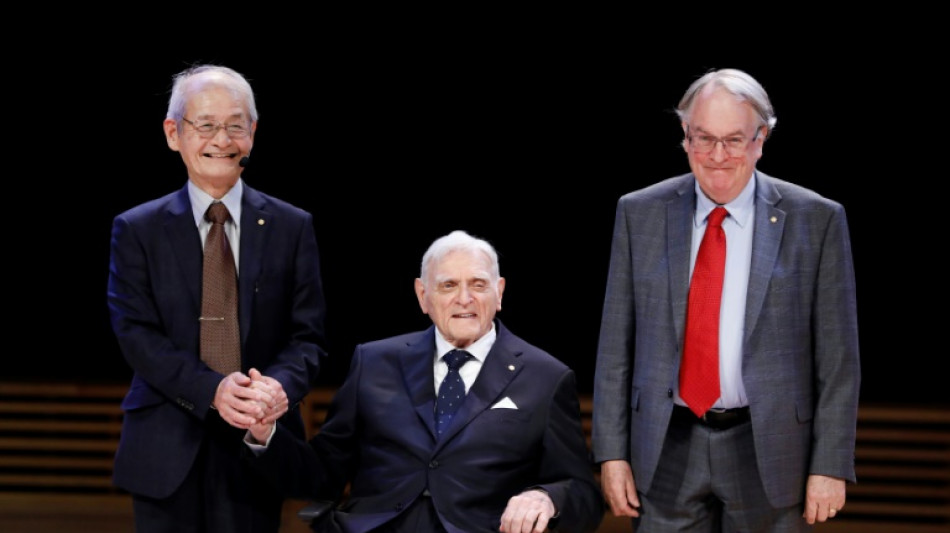
-
 Japan ex-PM Abe's alleged killer faces verdict
Japan ex-PM Abe's alleged killer faces verdict
-
Climate change fuels disasters, but deaths don't add up

-
 Stocks stable after tariff-fuelled selloff but uncertainty boosts gold
Stocks stable after tariff-fuelled selloff but uncertainty boosts gold
-
What growth?: Taiwan's traditional manufacturers miss out on export boom
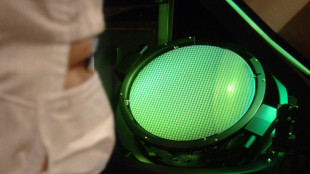
-
 'Super-happy' Sabalenka shines as Alcaraz gets set at Australian Open
'Super-happy' Sabalenka shines as Alcaraz gets set at Australian Open
-
With monitors and lawsuits, Pakistanis fight for clean air

-
 Sabalenka sets up potential Raducanu showdown at Australian Open
Sabalenka sets up potential Raducanu showdown at Australian Open
-
Chile president picks Pinochet lawyers as ministers of human rights, defense
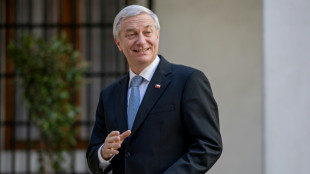
-
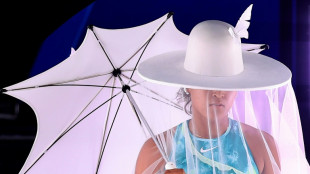 Osaka says 'I'm a little strange' after Melbourne fashion statement
Osaka says 'I'm a little strange' after Melbourne fashion statement
-
UN report declares global state of 'water bankruptcy'

-
 Trump heads for Davos maelstrom over Greenland
Trump heads for Davos maelstrom over Greenland
-
Ukraine's Oliynykova wants Russian, Belarusian players banned from tennis

-
 Kasatkina cannot wait to be back after outpouring of Melbourne support
Kasatkina cannot wait to be back after outpouring of Melbourne support
-
Chile blaze victims plead for help from razed neighborhoods

-
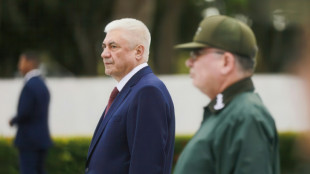 Russian minister visits Cuba as Trump ramps up pressure on Havana
Russian minister visits Cuba as Trump ramps up pressure on Havana
-
World order in 'midst of a rupture': Canada PM Carney tells Davos
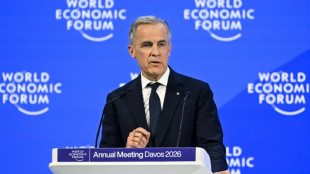
-
 Senegal's 'historic' AFCON champs honoured with parade, presidential praise
Senegal's 'historic' AFCON champs honoured with parade, presidential praise
-
Audi unveil new car for 2026 Formula One season

-
 Man City humiliated, holders PSG stumble, Arsenal remain perfect
Man City humiliated, holders PSG stumble, Arsenal remain perfect
-
Vinicius, Real Madrid need 'love' not whistles: Bellingham

-
 Late Suarez winner stops Champions League holders PSG in Lisbon
Late Suarez winner stops Champions League holders PSG in Lisbon
-
Frank seeks Spurs 'momentum' after beating Dortmund

-
 Jesus' 'dream' brace at Inter fires Arsenal into Champions League last 16
Jesus' 'dream' brace at Inter fires Arsenal into Champions League last 16
-
US regulator appeals Meta's court victory in monopoly case
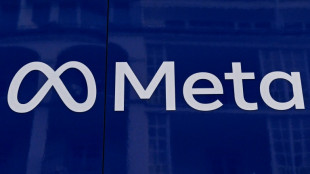
-
 Netflix shares fall as revenue appears to stall
Netflix shares fall as revenue appears to stall
-
Tottenham beat 10-man Dortmund to hand Frank stay of execution

-
 Mbappe, Vinicius help Real Madrid thrash Monaco in Champions League
Mbappe, Vinicius help Real Madrid thrash Monaco in Champions League
-
Men's Fashion Week kicks off in Paris with Louis Vuitton show
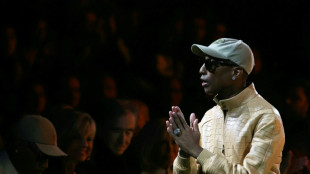
-
 Jesus fires Arsenal past Inter and into Champions League last 16
Jesus fires Arsenal past Inter and into Champions League last 16
-
Muted anniversary: Trump marks first year back with grievances
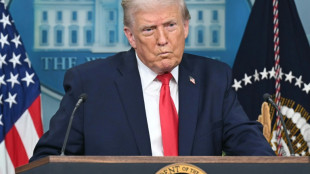
-
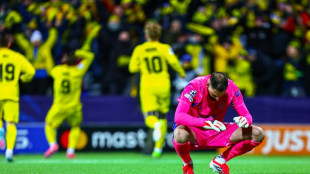 Humiliated Man City have to 'change the dynamic': Guardiola
Humiliated Man City have to 'change the dynamic': Guardiola
-
Golden State's Butler out for season with ACL injury: agent
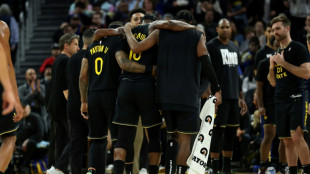
-
 Venezuela woos US oil majors with new investment czar
Venezuela woos US oil majors with new investment czar
-
Wales Six Nations strike threat just 'speculation' for Tandy
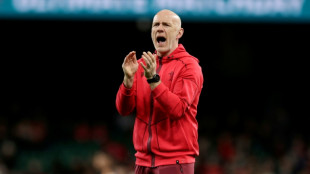
-
 Syria government agrees new truce with Kurdish forces
Syria government agrees new truce with Kurdish forces
-
Russian interior minister in Cuba, which faces pressure from Trump
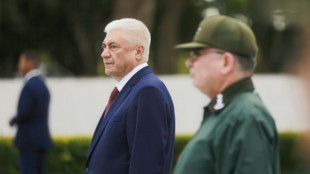
-
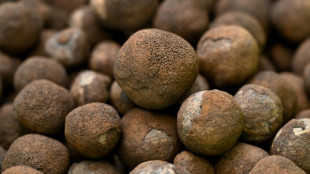 US finalizes rule for deep-sea mining beyond its waters
US finalizes rule for deep-sea mining beyond its waters
-
Iran protest crackdown latest developments

-
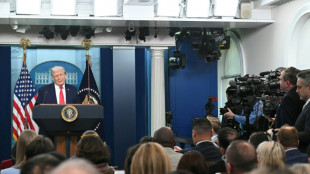 Muted anniversary: Trump marks first year back with familiar grievances
Muted anniversary: Trump marks first year back with familiar grievances
-
Man City stunned by Bodo/Glimt in epic Champions League upset

-
 Cooler temperatures offer respite for Chile firefighters
Cooler temperatures offer respite for Chile firefighters
-
Scientists plan deep-sea expedition to probe 'dark oxygen'

-
 Howe calls on Newcastle to use spirit of Robson to inspire win over PSV
Howe calls on Newcastle to use spirit of Robson to inspire win over PSV
-
Massive US presence makes its mark on Davos

-
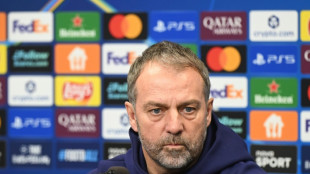 Ter Stegen to join Girona on loan: Barca coach Flick
Ter Stegen to join Girona on loan: Barca coach Flick
-
France PM forces part of budget through parliament without vote
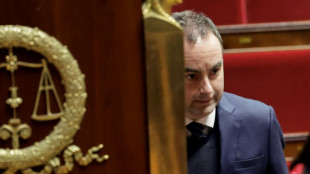
-
 Scotland boss Townsend picks veterans Gray and Cherry for Six Nations
Scotland boss Townsend picks veterans Gray and Cherry for Six Nations
-
Record try-scorer Penaud faces French axe for Six Nations

-
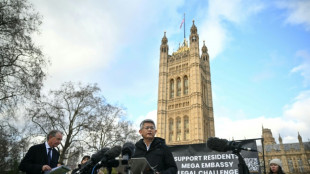 UK approves plans for Chinese mega-embassy in London
UK approves plans for Chinese mega-embassy in London
-
Rosenior keen to build winning ties with 'world-class' Fernandez


Nobel-winning lithium battery inventor John Goodenough dies at 100
John Goodenough, who shared the 2019 Nobel Prize in Chemistry for developing the lithium-ion battery that revolutionized modern life, has died at the age of 100, the University of Texas announced.
Goodenough died on Sunday, said the university, where he worked as an engineering professor.
The US scientist's contributions to the development of lithium-ion batteries paved the way for smartphones and a fossil fuel-free society.
"John's legacy as a brilliant scientist is immeasurable -- his discoveries improved the lives of billions of people around the world," Jay Hartzell, president of the University of Texas at Austin, said in the statement.
"He was a leader at the cutting edge of scientific research throughout the many decades of his career."
In 1986, at the age of 64, Goodenough joined the University of Texas where he served as a faculty member in the Cockrell School of Engineering for 37 years.
"The world has lost an incredible mind and generous spirit. He will be truly missed among the scientific and engineering community, but he leaves a lasting legacy that will inspire generations of future innovators and researchers," said Sharon Wood, provost of the University of Texas.
Goodenough became the oldest person to win a Nobel Prize when at the age of 97 he shared the 2019 chemistry award with Britain's Stanley Whittingham and Akira Yoshino of Japan for the invention of the lithium-ion battery.
Seeking an alternative source of power during the oil crisis of the 1970s, Whittingham discovered a way to harness the potential energy in lithium, a metal so light it floats on water.
However, the battery he constructed was too unstable to be used.
Goodenough built on Whittingham's prototype, substituting a different metal compound and doubling the potential energy of the battery to four volts.
This paved the way for far more powerful and durable batteries in the future.
In 1985, Yoshino instead used a carbon-based material that stores lithium ions, finally rendering the battery commercially viable.
The culmination of the trio's research resulted in the most powerful, lightweight and rechargeable battery ever seen.
- 'A rechargeable world' -
"They created a rechargeable world," the Royal Swedish Academy of Sciences, which awarded the accolade, said at the time.
"Lithium batteries have revolutionized our lives since they first entered the market in 1991," and were "of the greatest benefit to humankind".
Their work considerably boosted human mobility, and allowed millions in developing countries to access information and services online with just a mobile phone.
Lithium-ion batteries have also reduced the reliance on planet-warming fossil fuels, especially in electric cars.
On receiving news of his Nobel, Goodenough expressed pride in the worldwide impact of his work.
"I'm extremely happy that my discovery has been able to help communication through the world," he said.
"We need to build relationships, not wars. I am happy if people use this for good, not evil."
Born in 1922 in Germany, Goodenough grew up in the United States and earned a bachelor's degree in mathematics from Yale University.
After serving as a meteorologist in the US Army during World War II, Goodenough earned a master's degree and a PhD in physics at the University of Chicago in 1952, according to the University of Texas statement.
From 1952, he worked at the Massachusetts Institute of Technology's Lincoln Laboratory for 24 years and laid the groundwork for the development of computer random-access memory (RAM).
Goodenough was head of the inorganic chemistry laboratory at Oxford University when he made his lithium-ion battery discovery.
In 1986, he joined the University of Texas where he was known for his "quick wit and infectious laugh."
He was still coming into work well into his 90s, the university said.
Goodenough and his wife Irene were married for 70 years, until her death in 2016.
L.Janezki--BTB




